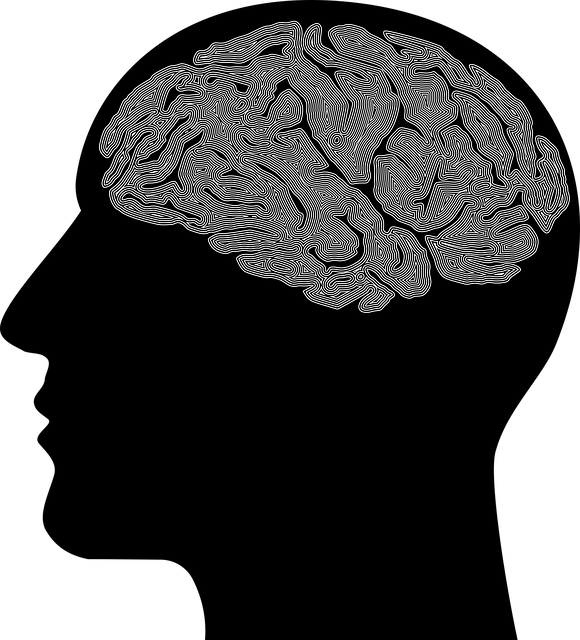Cultural competency is crucial in modern healthcare, especially in diverse regions like the US, where minorities make up a quarter of the population. Boulder Acceptance and Commitment Therapy (ACT) offers a unique approach to mental health care, focusing on acceptance, mindfulness, and personal values to improve patient outcomes. By understanding cultural beliefs and practices, therapists can create inclusive environments, enhance patient engagement, reduce conflicts, and promote better mental wellness. Effective training programs for healthcare providers should incorporate dynamic elements like workshops, case studies, and role-playing to develop cultural sensitivity skills, leading to personalized care and improved patient satisfaction. Regular feedback and self-care guidance are essential tools for evaluating the impact of such training within healthcare organizations.
“In today’s diverse healthcare landscape, cultural competency is not just a nice-to-have but an imperative. This comprehensive guide explores the vital role of cultural competency training for healthcare providers, focusing on strategies to enhance patient care and outcomes. We delve into the significance of understanding cultural nuances and how Boulder Acceptance and Commitment Therapy (ACT) offers innovative solutions. From designing effective training programs to evaluating their impact, this article navigates the key steps to foster a culturally competent healthcare environment.”
- Understanding Cultural Competency in Healthcare: Why It Matters
- The Role of Acceptance and Commitment Therapy (ACT) in Cultural Training
- Designing Effective Training Programs for Healthcare Providers
- Implementing and Evaluating Cultural Competency Initiatives
Understanding Cultural Competency in Healthcare: Why It Matters

Cultural competency is an essential aspect of modern healthcare that goes beyond treating symptoms. It involves understanding and respecting diverse cultural beliefs, values, and practices, ensuring every patient receives care tailored to their unique background. In today’s diverse society, where one in four Americans identifies as a racial or ethnic minority, this understanding is crucial for delivering effective healthcare services.
For mental health professionals, such as those practicing Boulder Acceptance and Commitment Therapy (ACT), cultural competency means creating inclusive environments that foster open communication. It involves recognizing how cultural factors can influence perceptions of mental health, treatment preferences, and barriers to care. By integrating these insights into their practice, therapists can enhance patient engagement, improve outcomes, and contribute to better overall mental wellness. This approach is not only beneficial for individual patients but also contributes to effective risk management planning in mental health settings, as it reduces potential misunderstandings and promotes a safer, more supportive atmosphere.
The Role of Acceptance and Commitment Therapy (ACT) in Cultural Training

Cultural competency training is an essential aspect of modern healthcare, and Acceptance and Commitment Therapy (ACT) offers a unique and effective approach to enhancing cross-cultural understanding. ACT, popularized in Boulder by its name’s origin, focuses on promoting acceptance, mindfulness, and personal values to foster better mental health. This therapy can play a pivotal role in cultural training by helping healthcare providers navigate the complex landscape of diverse patient backgrounds and beliefs.
By integrating ACT principles, healthcare professionals learn to reduce stress and anxiety associated with working with culturally different populations. It encourages self-care routine development, allowing providers to maintain their emotional well-being while fostering better relationships with patients. Moreover, ACT facilitates self-esteem improvement, enabling healthcare workers to embrace their strengths and values, leading to more confident interactions in diverse settings. These stress reduction methods contribute to enhanced cultural sensitivity and improved patient outcomes.
Designing Effective Training Programs for Healthcare Providers

Effective training programs for healthcare providers, such as those incorporating Boulder Acceptance and Commitment Therapy (ACT) techniques, should be multifaceted and engaging. They must address the unique cultural and social contexts in which healthcare is delivered, fostering an environment where diverse perspectives are respected and valued. Interactive workshops, case studies, and role-playing scenarios can help professionals develop cultural competency skills, enhancing their ability to connect with patients from different backgrounds.
These programs should also emphasize practical applications, equipping providers with tools for Depression Prevention, Risk Management Planning for Mental Health Professionals, and Emotional Well-being Promotion Techniques. By combining theoretical knowledge with hands-on experience, healthcare providers can better navigate complex ethical dilemmas and deliver more personalized, culturally sensitive care, ultimately improving patient outcomes and satisfaction.
Implementing and Evaluating Cultural Competency Initiatives

Implementing cultural competency training within healthcare organizations is a multifaceted process. It involves careful planning and strategic initiatives to ensure that providers are equipped to deliver culturally sensitive care. One effective approach, inspired by practices like Boulder Acceptance and Commitment Therapy (ACT), emphasizes emotional regulation techniques tailored to diverse patient backgrounds. By integrating these methods, healthcare providers can foster better patient-provider relationships, enabling more accurate assessments and personalized treatment plans.
Evaluation of cultural competency initiatives is crucial for measuring their impact and identifying areas for improvement. Regular feedback from patients and staff can provide valuable insights. Additionally, implementing a mental wellness journaling exercise guidance or encouraging self-care routine development for better mental health can serve as qualitative indicators of cultural competency success. These practices not only enhance emotional regulation but also strengthen the overall healthcare experience.
Healthcare provider cultural competency training is a vital initiative that fosters better patient care and outcomes. By incorporating methods like Boulder Acceptance and Commitment Therapy (ACT), we can create more effective and inclusive learning experiences. Designing comprehensive programs, as outlined in this article, ensures healthcare providers are equipped to navigate diverse cultural landscapes. Implementation and evaluation are key steps to ensure these initiatives make a tangible difference, ultimately enhancing the patient experience and reflecting the values of modern healthcare.














